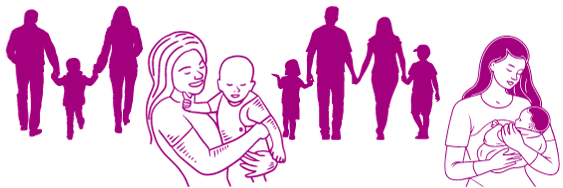Traveling with a Formula-Fed Baby: A Comprehensive Guide

Traveling with a formula-fed baby demands meticulous planning and a keen eye for detail. From selecting the right formula and sterilizing equipment to abiding by travel regulations and managing feeding schedules, each aspect requires careful consideration.
As caregivers set off on journeys with their little ones, this guide serves as a beacon of guidance, offering essential tips and insights to guarantee a smooth and hassle-free travel experience.
Stay tuned to discover how foresight, adaptability, and preparedness can pave the way for a successful voyage with a formula-fed baby.
Formula Selection and Preparation
Selecting the appropriate formula and ensuring proper preparation are essential steps in successfully traveling with a formula-fed baby. When it comes to formula storage, opt for pre-measured formula dispensers or pack individual formula packets to streamline feeding on the go.
Packing essentials include insulated bags or portable bottle warmers to maintain the correct temperature for formula, ensuring your baby’s comfort. It is important to pack enough formula for the duration of your travels, considering potential delays.
Choose a formula brand that is readily available at your destination to avoid any last-minute stress. By organizing your formula supplies efficiently, you can navigate through your journey with ease and provide your baby with the nutrition they need.
Equipment Sterilization and Packing
Efficient sterilization and packing of feeding equipment is essential for ensuring the hygiene and safety of formula-fed babies during travel. Utilizing portable sterilization options is critical for maintaining cleanliness on the go.
Portable sterilization methods like sterilization bags or compact sterilization kits can help sterilize bottles and accessories effectively. When packing, make sure bottles and formula are securely stored to prevent leaks and contamination. Consider packing extra supplies in case of unexpected delays.
To optimize space, organize feeding items in dedicated compartments within a diaper bag. Following these packing tips will help streamline the process and make sure that feeding equipment remains clean and ready for use during travel.
Adapting to Travel Changes
When traveling with a formula-fed baby, adjusting to changes in travel time and time zone differences is essential for maintaining a consistent feeding schedule. Adapting routines and being mindful of time zone variances can help make sure your baby receives their necessary nutrition at the right intervals.
Here are three key points to take into account:
- Maintain Consistency: Stick to your baby’s regular feeding routine as much as possible.
- Plan Ahead: Anticipate how travel changes may affect feeding times and be prepared to adjust accordingly.
- Stay Flexible: Be adaptable to unexpected delays or disruptions in your feeding schedule due to travel.
Essential Travel Gear
Adjusting to travel changes involves not only maintaining feeding routines but also making sure you have the necessary essential travel gear for a seamless experience with your formula-fed baby.
When packing essentials for your trip, consider including portable bottle warmers to easily heat up formula on the go. These bottle warmers can be a lifesaver when you need to feed your baby outside of your usual schedule.
Additionally, insulated bags can help keep prepared formula at the right temperature while traveling. By having these essential items on hand, you can make sure that feeding time with your baby remains convenient and stress-free throughout your journey.
Health and Safety Measures
To guarantee the well-being of your formula-fed baby while traveling, prioritize incorporating health and safety measures into your preparations. Here are essential health and safety measures to take into account:
- Baby Friendly Sanitizers: Carry baby-friendly hand sanitizers or wipes to maintain cleanliness and hygiene during travel.
- First Aid Kits: Pack a portable first aid kit equipped with essential medical supplies for any unforeseen emergencies.
- Feeding Apps and Online Forums: Utilize baby feeding apps to track schedules and seek advice from online forums for valuable travel tips.
Managing Feeding Schedules
In planning for traveling with a formula-fed baby, ensuring the smooth management of feeding schedules becomes a fundamental aspect of maintaining the well-being and comfort of your little one. When starting on a journey, it is essential to make feeding routine adjustments to accommodate the new environment and potential disruptions.
Time zone challenges may arise, affecting your baby’s regular feeding times. To mitigate these challenges, gradually shift your baby’s feeding schedule to align with the new time zone. Maintaining consistency in feeding schedules while being flexible to adapt to travel-related changes is key to ensuring your baby receives the necessary nutrition at the right times.
TSA Guidelines and Security Measures
When traveling with a formula-fed baby, adherence to TSA guidelines and implementing security measures is essential for a smooth and hassle-free journey. It is vital to familiarize yourself with TSA regulations and security protocols to guarantee a seamless experience.
Here are three key points to take into account:
- Inform TSA Personnel: Notify security officers that you are carrying formula for your baby.
- Separate Formula: Keep formula containers separate for easier inspection.
- Security Screening: Be prepared for additional screening of formula containers, which may include a thorough check or testing for explosives residue.
Conclusion
To sum up, traveling with a formula-fed baby requires meticulous planning, organization, and adherence to safety guidelines. By carefully selecting and preparing formula, sterilizing and packing equipment, and adapting to changes in routine, caregivers can guarantee a smooth and stress-free journey.
Prioritizing health, safety, and security measures, along with being prepared for TSA regulations, will help caregivers navigate the challenges of traveling with an infant. With foresight and preparation, caregivers can create a positive travel experience for both themselves and the baby.


